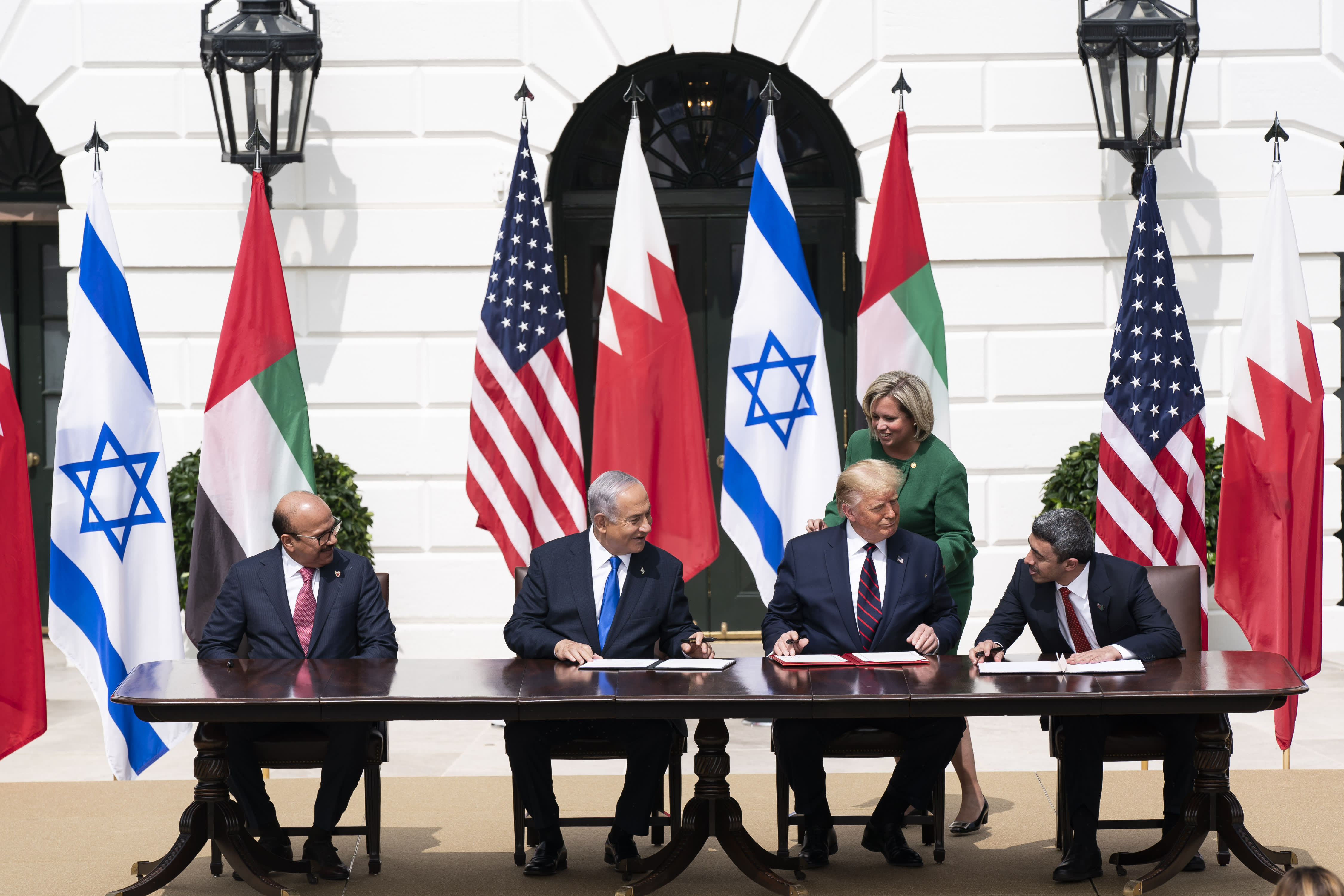
SINGAPORE — The Middle East will benefit from the bilateral deal between Israel and the United Arab Emirates, the Emirati minister of economy said this week.
“Both nations will bring different mindsets to the table, different advantages, and I think the whole region will benefit from this agreement,” Abdulla bin Touq told CNBC’s Hadley Gamble on Wednesday. His comments follow a ceremony at the White House where Bahrain and the UAE held a signing ceremony with Israel.
In August, the UAE became the third Arab country to open diplomatic ties with Israel in a U.S.-brokered deal. Bahrain followed, normalizing relations last week. Egypt and Jordan established normal ties with Israel in 1979 and 1994, respectively.
Iran, Turkey and the Palestinians have condemned the UAE and Bahrain for establishing relations with Israel.
Bahrain Foreign Minister Abdullatif bin Rashid Al Zayani, Israeli Prime Minister Benjamin Netanyahu, U.S. President Donald Trump and UAE Foreign Minister Abdullah bin Zayed Al Nahyan (L to R) attend a signing ceremony for the agreements on “normalization of relations” reached between Israel, the United Arab Emirates and Bahrain at the White House in Washington.
The White House | Shealah Craighead | Anadolu Agency | Getty Images
Bin Touq said his country and Israel will learn from each other now that an “overarching agreement” is in place. “All the other agreements are going to come in place, from aviation, from logistics and from technology.”
“They’re learning from us about logistics and hubs, and learning from us about tourism and connectivity,” he said. “We’re going to learn from them a lot on … the energy and water and space as well. These are the areas that we’re actually very excited on.”
Israel’s newly normalized relations with the UAE and Bahrain are in line with the three countries’ shared rivalry with Iran.
The agreements do not address Israel’s long-running conflict with the Palestinians. On Tuesday, the same day the countries held their ceremony at the White House, Palestinian militants fired rockets into Israel. The Israeli military then launched airstrikes on Gaza on Wednesday.
William Wechsler of the Atlantic Council warned in a blog post last week of further instability in the Middle East as Bahrain and the UAE work openly with Israel to counter “non-Arab regional powers.” He specifically cited Iran, Turkey and Russia.
“This new regional geopolitics is likely to be even less stable than even the dangerous one to which we have become accustomed, with a larger number of actors and a more uncertain future,” Wechsler wrote in a note online. He is the director of the Rafik Hariri Center and Middle East Programs at the Atlantic Council.




